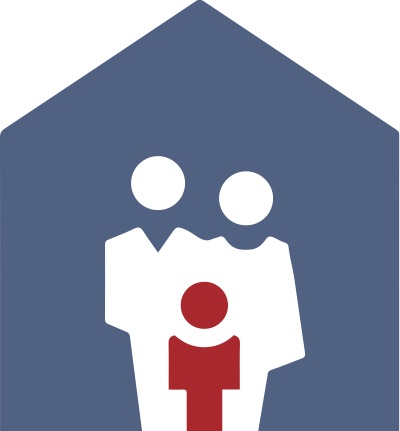On January 8, the Association of State and Tribal Home Visiting Initiatives (ASHTVI) held a briefing with policymakers and stakeholders to discuss the demonstrated value of Maternal, Infant, and Early Childhood Home Visiting programs, as well as share the newly released white paper, Research for Results: The Power of Home Visiting, which explores what the research shows about how voluntary home visiting programs and practices are evolving, growing, and improving outcomes for vulnerable children and families.
Partners came together to dive in to the research on home visiting, discuss how research and data collection drive continuous quality improvement of home visiting programs, and to consider implications of that research for other evidence-based policy.
Moderated by Lenore Scott of New Jersey, an ASTHVI Founding Steering Committee Member, panelists at the briefing included:
- Laurel Aparicio, Executive Director of Early Impact Virginia, a Virginia-based non-profit organization that supports the state agency in MIECHV implementation. Aparicio spoke about Virginia’s use of research funds for a study examining family engagement in home visiting, comparing first-time mothers to mothers who enrolled in home visiting following the birth of a subsequent child. She emphasized the essential role of research in supporting effective programs, guiding home visiting implementation and policy in an environment of scarce resources.
- Ted McCann, Fellow at the Bipartisan Policy Center and former Assistant for Policy to House Speaker Paul Ryan, who provided the political perspective on the reasons behind bipartisan support for home visiting, and specifically the MIECHV program. McCann also highlighted how recent legislation has incorporated the lessons learned from the evidence-based focus of MIECHV to support continuous improvement and wise use of federal dollars in other programs.
- Sarah-Jeanne Salvy, Associate Professor of Medicine at Cedars-Sinai in Los Angeles, who is currently conducting two research projects, including one in Alabama and one in California, focused on using home visiting to deliver interventions that reduce maternal and child obesity. Dr. Salvy discussed the power of the community-tailored and evidence-based approach of MIECVH, speaking to how the Alabama project incorporated lessons learned from the work in California. She emphasized that one size does not fit all when it comes to meeting the needs of communities and families, and that research needs to collect short and long-term data to fully understand impacts and outcomes.
- Danielle from Iowa who traveled to Washington to share her journey as a parent participating in a Nurse-Family Partnership program in Iowa, which provided her with the coping tools and resources to help break a cycle of abuse and provide a safe home for her child.
The esteemed panelists shared their personal stories, research and on-the-ground work in home visiting programs and services. Many of the programs discussed are highlighted in the white paper.
Speaking to the importance of research in home visiting and the work in Virginia, Laurel Aparicio, said, “Home visiting is at the forefront of using data to make smart policy decisions. Research is as much a part of our field as the programs themselves.”
Danielle shared her personal story about the Nurse-Family Partnership (NFP) program she graduated from in Iowa that helped her address challenges of post-partum depression and substance use, as well find provide a stable home life for herself and her son. “Motherhood can be scary, crazy, and lonely but Nurse-Family Partnership was the light of motherhood for me,” said Danielle. “NFP can drastically change the outcomes of new mothers, no matter their background,” she said.
In sharing these findings and identifying models that work at the local level, ASTHVI promotes continuous improvement of home visiting in communities across the country and, most importantly, helps better support families of infants and toddlers during this critical time in development.
About the Report– Research for Results: The Power of Home Visiting
Funded by the Robert Wood Johnson Foundation and the Heising-Simons Foundation, the white paper highlights research findings from more than 30 peer-reviewed studies that can help government policymakers, home visiting practitioners, and others realize the full potential of the 2010 Maternal, Infant, and Early Childhood Home Visiting (MIECHV) legislation. This critical piece of legislation provided the first federal funding for a comprehensive state and Tribal-based system of voluntary home visiting services. These services include data collection and evaluation, research, and continuous quality improvement.
With the support of MIECHV, home visiting services and programs, developed and implemented at the local level, can help ensure that parents, babies, and young children have the tools and resources needed during this critical time of early childhood development. These supports can help parents to break the cycle of multi-generational poverty and lay a foundation for their child’s future health, education and lifetime success. The white paper includes findings from 33 studies examining outcomes in the six MIECHV benchmark areas. These include maternal and newborn health; child injuries and maltreatment; school readiness and achievement; crime or domestic violence; family economic self-sufficiency and coordination and referrals. They describe evaluation results from a broad range of evidence-based models, approaches, and geographies that illustrate the power of home visiting in generating these results.
To read the full copy of the white paper, please click below.

